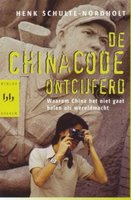The Trade Act of 1974 (as amended by the Omnibus Trade and Competitiveness Act of 1988 and the Uruguay Round Agreement Act enacted in 1994) instructed the Office of the U.S. Trade Representative to identify annually those countries that deny adequate and effective protection for IPR or deny fair and equitable market access for persons that rely on intellectual property protection. Section 182 of the Trade Act of 1974 (
Title 19 USC 2242) is commonly referred to as the "'Special 301" provision of the Trade Act, while Section 301, (
Title 19 USC 2411) refers to the actions of the USTR.
Countries are placed into a hierarchy of categories, with the ranking of Priority Foreign Country reserved for the worst situations:
1. Priority Foreign Countries: those countries that USTR believes have the most onerous or egregious policies with the greatest adverse impact on U.S. right holders or products. These countries are subject to accelerated investigations and possible sanctions.
2. Priority Watch List: those countries which do not to provide adequate IP protection and enforcement or market access for U.S. persons relying on intellectual property protection.
3. Watch List: those countries USTR believes merit bilateral attention to address the underlying IPR problems.
Section 306 Monitoring: Being placed under Section 306 Monitoring means that the USTR can movedirectly to the application of trade sanctions against China if monitoring shows a slippage in China's enforcement of bilateral intellectual propertyrights agreements. The legal basis for section 306 monitoring is of course section 306 (Title 19, USC 2416).
Out-of-cycle Review: those countries that require further monitoring in addition to the annual review cycle.
China is climbing down the steps of vice
In 1994 China was designated a Priority Foreign Country, and remained subject to monitoring under Section 306 of the US Trade Act. Section 306 Monitoring happened because the US have bilateral agreements with China to address specific problems raised in earlier reports.
In 2005, China has been upgraded from Priority Foreign Country to Priority Watch List as a result of the Out-of-Cycle Review as it caused serious concerns about its compliance with its obligations under the WTO Agreement on Trade-Related Aspects of Intellectual Property Rights (TRIPS) and its JCCT commitments. . Being placed under "Section 306" monitoring means that the USTR can move directly to the application of trade sanctions against China if monitoring shows a slippage in China's enforcement of bilateral intellectual property rights agreements. Infringement levels remain unacceptable high, according to USTR, so China remains in the top priority watch list category.
This year the Section 301 Report introduced monitoring virtual and physical markets: Baidu.com was mentioned as the target of infringement actions and the example was given that the search engine company was ordered by the People's Court of Haidian District in Beijing to pay RMB 68,000 (8,400 US dollar) to a music company for unauthorized downloads. Baidu appealed. Read more here and here.
Xiangyang Market of Shanghai: the Shanghai Municipal Governement said it would close on ground of rampant sale of counterfeit fashion and apparal products. See more here.
According to the USTR Beijing's Silk Street Market was cited as "perhaps the signle biggest symbol of China's IP enforcement problems." Read more here.
Yiwu Wholesale Market. Yiwu Wholesale Market reportedly sells approximately 410,000 different items, mostly consisting of bulk sales of small consumer goods. Market officials recently estimated receiving approximately 400 complaints of IPR violations from buyers in 2005. Read more here and here.
The report also examined four Chinese 'hot spots' that require increased attention and resources: Guangdong Province (counterfeit and pirate manufacturing: from low cost consumer goods, household items, clothing and optical media, to high-technology products), Beijing City (retail counterfeit and pirated goods), Zhejiang Province (distribution centre for infringing goods. City of Yiwu draw attention for distributing suspected counterfeit lighter fluid and yellow wristbands suspected of infringing the LIVESTRONG trademark of the Lance Armstrong Foundation. Other problem localities include: Ningbo, Cixi, Taizhou, and Wenzhou) and Fujian Province (large scale manufacturing, including athletic footwear companies in Jinjiang and Putian that have been the target of infringement allegations in long-running legal actions by U.S. trademark owners New Balance, Reebok, and Nike. More problem localities include Quanzhou.
Read the 2006 Section 301 Report here.



